Small and lightweight - still packs a punch.
Open-Frame Platforms
Our open-frame concept allows you to use your Canister Stack in various platforms such as the FuelCan and Bench Chassis.
FuelCan
The FuelCan is the ultimate sandbox for students, electronic hobbyists, engineers, and scientists. It is an all-in-one development platform that allows for rapid prototyping of your Canister Stack, sensors, and modules.

The FuelCan
Durability
Built with the best hard case on the planet. Nanuk cases are rugged, waterproof, and engineered to last.
Scalability
Connect via USB and Ethernet, stack multiple Canisters, cluster multiple development boards.
Versatility
We designed a platform that can adapt to any sensor, module, or development board.
Usability
A multi-faceted platform for a wide variety of applications such as automation/control, monitoring, data acquisition, and circuit analysis.
Save time by having everything at your disposal as soon as you open the FuelCan. No more searching for that power adapter, cable, breadboard, or sensor. Faster prototypes and quicker time-to-market are essential in today’s competitive industry.


Canisters
Designed to adapt to any application.
Canisters were designed with customizability in mind.
Adapticon
Adapticon allows you to mount a Raspberry Pi 3 Model B/B+, Raspberry Pi Zero, or an Arduino Uno Rev3. You can easily jumper from the development board to the 4×26-pin connector to communicate with any Canister within your stack. Want to mount a sensor? Build an adapter plate with your sensor’s footprint that mounts to one of the provided footprints on Adapticon.
BaseOps
Power your Canister Stack independent of the FuelCan platform. BaseOps gives you the capability to switch between a triple-output power supply or battery to source power-hungry motors.
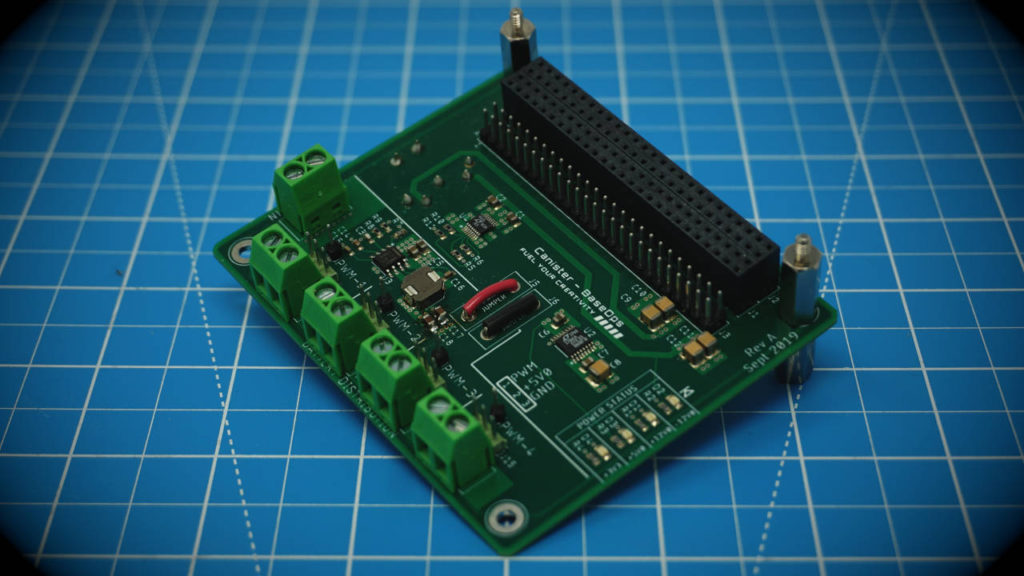
Captis
Captis features a two-stage amplifier design with an adjustable gain on each stage. This allows you to amplify small voltage signals from external sensors to fit within the ADC’s sampling range. You can easily configure the amplifiers for inverting or non-inverting operation with the fuse jumpers. It also features an isolated power and ground design for enhanced noise immunity.
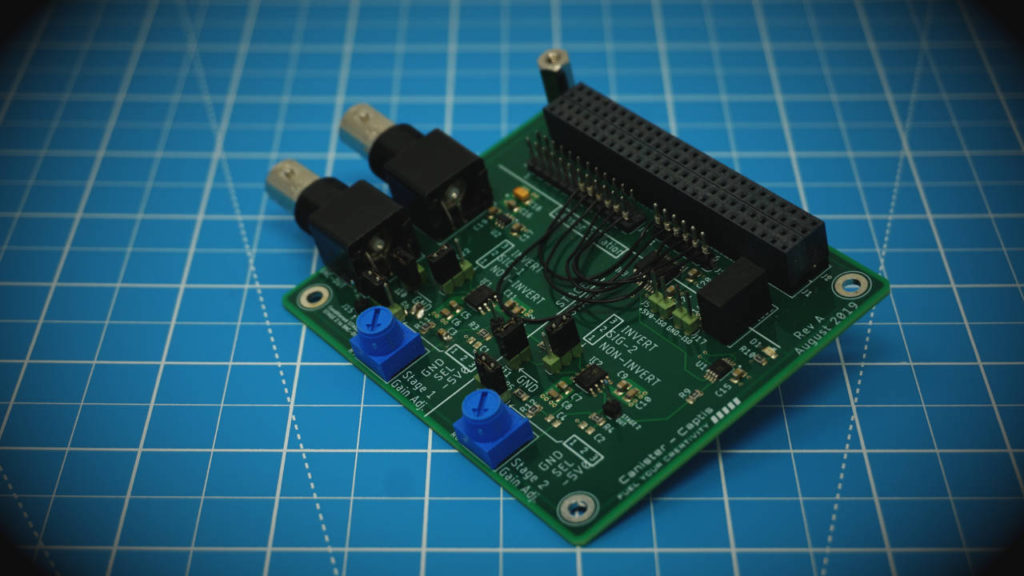
Modulus
Modulus offers both a 2.54mm and 2.00mm pitch allowing you to solder almost any component to it such as headers, sockets, switches, LEDs, resistors, and capacitors. You can connect motors to control them, an LCD to display data acquired from the analog world, or sensors to obtain information about the surrounding environment.
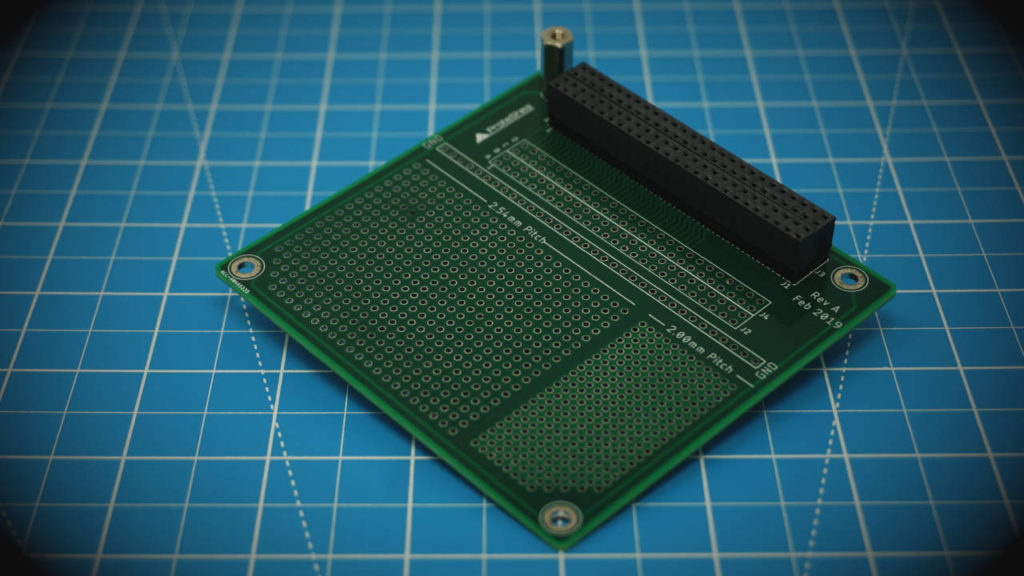
VersaSMT
The VersaSMT Canister has many common surface-mount footprints allowing you to solder on IC packages such as SOIC-8, SOIC-20, TSSOP-6, TSSOP-20, SOT-223-3, SOT-23-3, and TO-263-6. It also has three 0805 footprints to solder on LEDs and a through-hole DB9 footprint.
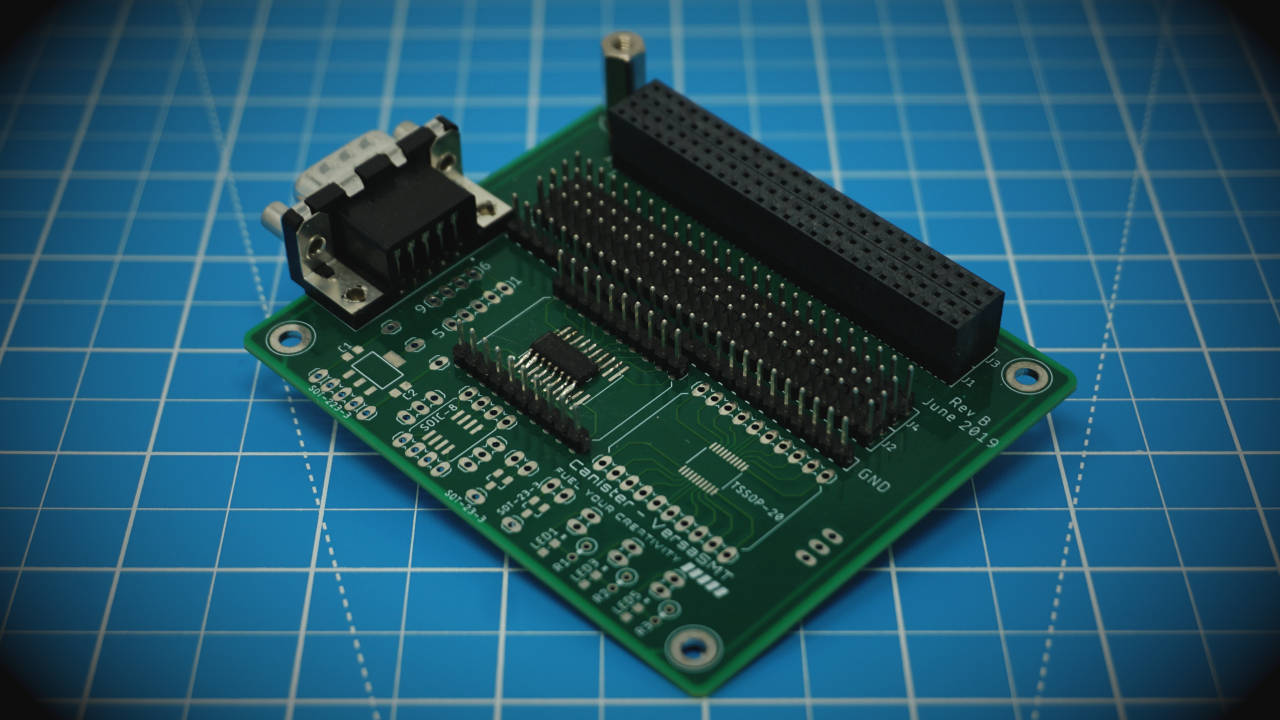
Termini
This Canister features a terminal-block breakout so you can easily access every pin of the 4×26 connector.
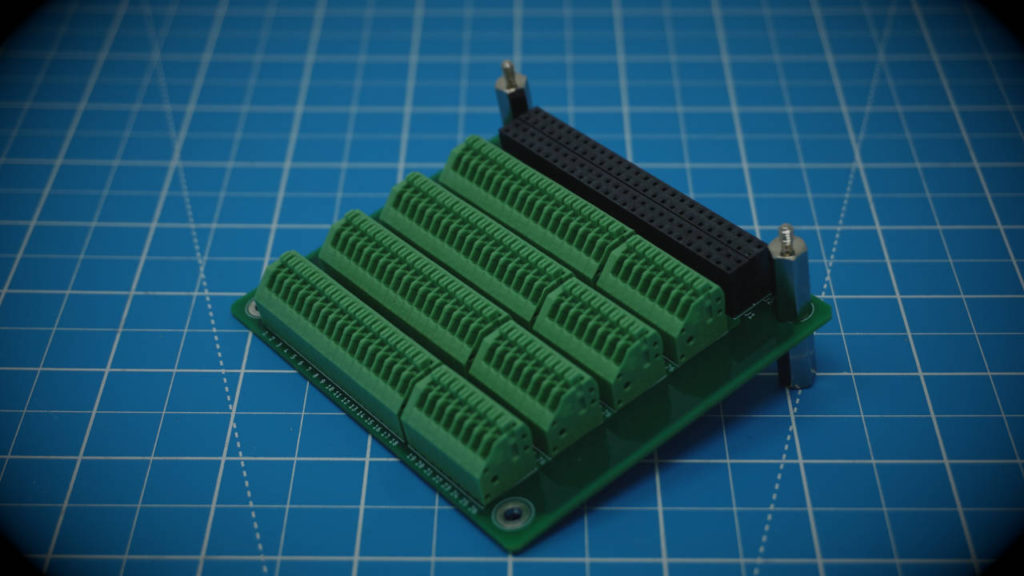
Specifications
AC Voltage
90 - 120VAC
DC Voltage
+12, -12, +5, +3.3Vdc
Power & Ground Interface
(x1) 5-pin DIN
(x6) Banana jack
(x2) Type A USB
(x1) 4x26-pin connector
Max Current Ratings
+12Vdc: 1.0A
-12Vdc: 0.3A
+5Vdc & +3.3Vdc: combined 2.5A
Interfaces
Isolated USB
Ethernet
Waterproof
Yes
Prototyping Area
7.0" x 4.0" x 1.5"
Exterior Dimensions
14.3" x 11.1" x 4.7"
Top Storage Compartment
13.4" x 9.4" x 1.1"
Bottom Storage Compartment
4.7" x 9.1" x 2.4"
Weight
5.0 lbs
Cables Included
6' Type A to Type A USB
6" Ethernet
Banana jack to test-lead clip
6' AC power
1' Type A to Type B USB
1' Type A to Micro USB
FAQ
Most frequent questions and answers
Yes, we kept ease-of-use as one of our main priorities while designing it. We wanted end-users to focus on building their prototypes, not figuring out how to use the FuelCan.
Yes, but keep in mind that one is only used for power, and the other can be used for power and/or data. You must also stay within the max current rating of the +5V rail which is 2.5A (assuming that nothing is being powered on the +3.3V rail).
You can use the preinstalled threaded inserts to mount a Raspberry Pi 3 Model B/B+ and an Arduino Uno Rev3. If you don’t use these boards, you can mount a board with an area up to 15 square inches where one dimension does not exceed 4 inches.
We do not recommend it since there is not proper ventilation, heat-syncing, or air circulation within the case. Furthermore, you cannot close the case with the AC/DC power adapter plugged in.
Yes, you can. Just make sure that you stay within the recommended max current ratings for each voltage rail.
To prevent ground loops which are caused by having more than one connection to earth ground. If you have a ground loop, this causes the ground potential to rise from 0V. If your signals do not reference a pure-zero ground, they can become corrupt.
A negative voltage supply is used for dual-supply operational amplifiers, certain transistors such as N-channel JFET, and input for negative voltage regulators.